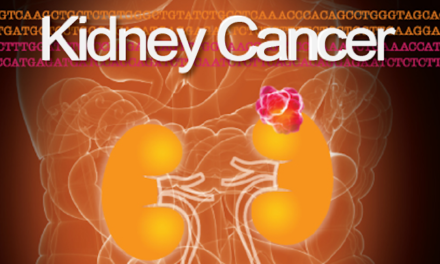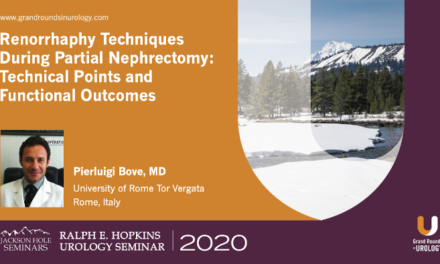
Germline Mutations in CancerSusceptibility Genes in Patients with Advanced Renal Cell Carcinoma
Abstract
Identification of patients with hereditary renal cell carcinoma (RCC) is important for cancer screening and potentially treatment. The prevalence of cancer-associated germline mutations in patients with advanced RCC, and the phenotypes associated with rare mutations, is unknown.
Patients with advanced RCC (stage III/IV) who consented to disclosure of germline results as part of a paired tumor-normal gene panel were included (n=254). Seventy-six genes associated with cancer predisposition were analyzed. Clinical data was obtained from patient questionnaires and medical records, including age of onset, tumor histologic subtype, and tumor multifocality. Published guidelines from the American College of Medical Genetics (ACMG) were used to determine if patients would have met criteria for genetic testing. A germline mutation was considered “missed” if it was detected by sequencing, but would not have been detected by testing based on application of published guidelines.
Deleterious mutations were identified in 16% of patients; 5.5% had mutations in RCC-associated genes (7 in FH, 3 in BAP1, and 1 each in VHL, MET, SDHA, and SDHB) (Fig. 1). Overall, the most frequent mutations were: CHEK2 (n=9), FH (n=7), MUTYH (n=4) and APC(n=5). Of genes not traditionally associated with RCC, CHEK2 was over-represented in cases compared to the general population, with an odds ratio of RCC of 3.0 (CI=1.3-5.8; p=0.003). Paired analysis of somatic mutations identified loss of heterozygosity (LOH) in the tumor in over 50% of patients with CHEK2 germline mutations, supporting its role in the pathogenicity of the tumor (Fig. 2). Non-clear cell histology was associated with presence of RCC-associated gene mutation (p=0.001), but young age of onset nor family history were not. Applying the ACMG criteria for genetic testing referral, 39% of all patients would have met criteria for referral, but 36% of patients with germline mutations in RCC-associated genes would still have been missed.
Among patients with advanced RCC unselected for risk factors for hereditary syndromes, 16% had germline mutations, the majority in genes not traditionally related with RCC. Histology was associated with presence of RCC-associated germline mutations, but several traditional risk factors were not. CHEK2 mutations were associated with RCC risk, and could be included in RCC multi-gene panels. Current referral criteria for genetic testing, although broad, did not identify a substantial portion of patients with mutations and should be modified.
Authors: Maria I. Carlo | Semanti Mukherjee | Diana Mandelker | Joseph Vijai | Yelena Kemel | Liying Zhang | Kuo-Cheng Huan | Almedina Redzematovic | Devyn T. Coskey | Nisha Pradhan | Angela G. Arnold | A. Ari Hakimi | Ying-Bei Chen | Jonathan A. Coleman | David M. Hyman | Mark Ladanyi | Karen A. Cadoo | Michael F. Walsh | Zsofia K. Stadler | Chung-Han Lee | Darren R. Feldman | Martin H. Voss | Mark Robson | Robert J. Motzer | Kenneth Offit
Journal: Kidney Cancer, vol. 2, no. s1, pp. I-S50, 2018


